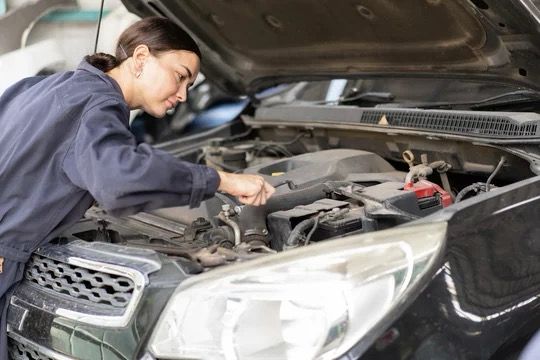Menu

1)To satisfy the requirement of being a 'fit and proper person,' Fair Trading will conduct thorough checks, which may include financial and police checks. These checks aim to assess your suitability and integrity to ensure compliance with the established standards and regulations.
2)Have the required qualification Motor Mechanic who service and repair the engines or transmissions or the fuel, induction, exhaust, electrical, steering, suspension, cooling, or braking systems of motor vehicles need one of the following qualifications:
For information on the Certificate III in Light Vehicle Mechanical Technology and for the full list of units of competency, please visit training.gov.au
